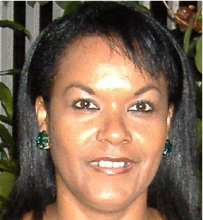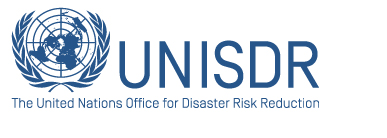A training workshop on mourning was developed and held on January 18th, attended by 50 psychology professionals who shared their work experiences and learned new approaches and techniques to address situations of mourning. A Psychological Counselling Day was also held on Saturday, January 25th at the Nursing School of the Central University of Venezuela in Caracas. On this day, in addition to providing free grief counselling through a brief therapy to people and households who had experience recent loss,assistance measures were implemented that will be improved and refined to provide better support when required.
Disasters, whether derived from natural, socio-natural or anthropogenic causes pose serious consequences and damages to the physical and psychological integrity of the individual. Disasters such as adverse circumstances have negative effects on humans. The suffering of men, women, children and adolescents, the elderly, the disabled and anyone who experiences a disaster situation is serious and not only refers to the loss of loved ones, homes, work or livelihood, but also includes the sense of injury to human dignity, insecurity and distrust, which diminishes personal image and the vision of the future. In addition, the effects on interpersonal and community relations should not be ignored, as they are weakened by disaster, damaging social cohesion.
The Pan American Health Organization (2010)* distinguishes between various problems faced in emergency and disaster situations at the individual, family, community and social levels: pre-existing social problems (such as extreme poverty or discrimination) social problems induced by the emergency (such as the separation of family members or greater gender-based violence) and social problems induced by humanitarian assistance (such as the weakening of community structures or traditional support mechanisms). All of these problems make it more difficult to restore the psychological balance after a disaster and can also represent life-threatening situations.
PSF-V is non-profit Civic Association founded in 2010 at the initiative of a group of psychologists. PSF-V is an independent entity, connected to a network of other Psychologists Without Borders Association around the world, and is supported by Federation of Psychologists of Venezuela trade union. The organization is comprised of over 150 members and has conducted over 28 training courses since 2010 in the areas of Crisis Intervention, Emotional Support, Assistance Communication, Stress Management and Strengthening the Resilience. Furthermore PSF- V is one of the more than 200 organizations registered in the National Register of Organizations for Disaster and Emergency Response, opened by the Vice Ministry of Risk Management and Civil Protection of Venezuela.
Related link
See this and other articles in the blog 'En Riesgo'
 |
|
Abelina Caro is the Promoter in Venezuela of the Global Campaign 'Making Cities Resilient: My City is Getting Ready!' promoted by the United Nations Office for Disaster Risk Reduction (UNISDR).
Professional Profile
Abelina Caro is a Social Psychologistand a graduate of the Central University of Venezuela-Caracas. Specialist in Disaster Risk Reduction and Sustainable Local Development of the DELNET Programme of the International Training Centre (ITC) of the ILO/UN. |
National Coordinator of the 'Local Risk Management Network'promoted by the ESCAP Social Group. Official in Venezuela of 'Views from the Frontline'project that measures the Goals of the Hyogo Action Framework worldwide. She is a Full Member of Psychology Without Borders Venezuela -PSF-V, an NGO that provides counselling to individuals who have been affected by disasters, emergencies or conflicts; Member of the Latin American Network of Civil Society Organisations for Disaster Reduction; and representative in Venezuela of the Global Network of Organizations Network of Civil Society Organisations for Disaster Reduction. Trained in Local Management (School of Social Management Foundation-Caracas), Social Policy and Management (INDES-BID-Washington) and Facilitator of Learning Processes in Popular Contexts and Organisations(Simon Rodriguez National Experimental University-Caracas).
Read more about Abelina Caro |
*an American Health Organization. Psychosocial support in Emergencies and Disasters. GUI deliñes for the Response Teams. Panama. June 2010.




